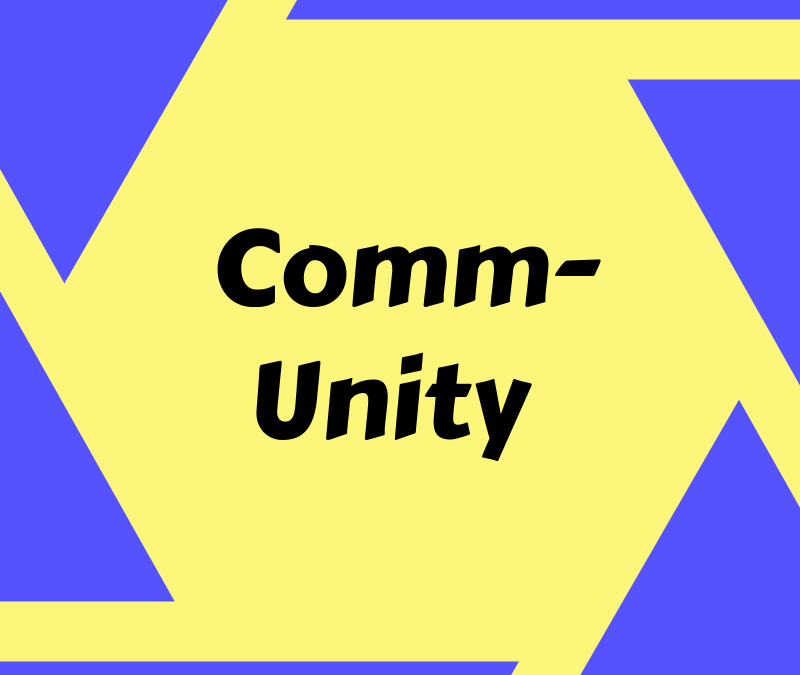The word community has a new meaning in my life. I was in the audience of a presentation where the word community (for reasons of space on a PowerPoint slide) was hyphenated and split across lines, like this:
comm-
unity
I made a mental note that the presenter had forgotten the rules of hyphenation. But seeing the word “Comm” by itself made me think “Communication”. For the first time in my life, I noticed that the words communication and community share a common root. I felt really dumb for not noticing that before.
I contemplated what this meant. My conclusion struck me as rather profound. Communication – like community — is a way that people connect. We teach connection in our workshops all the time – it’s what makes people want to listen; makes people say, “She’s talking to me!”; and compels them to think about the application of the subject to their own lives.
Fail to connect and you’ll fail to get a response.
Back to my hyphenated revelation. Comm-unity. As a compound word, it would mean having unity or like views in our communication. That’s the holy grail. Everyone in the same room, same organization, or same forum saying and hearing the same thing. It means that we have a like purpose and are executing for a common goal. There’s that root “comm” showing up again: common. Shared equally by all. Pertaining to an entire group.
There’s a theme emerging here, and I think it makes a wonderful mission statement for a speaker. Our goal is to find the common ground or at least a resonant theme that has everyone considering the same outcome. Good communicators get their audience to spend their precious brain power on the subject at hand. Great communicators do it in such a way that the listeners feel compelled to believe the outcome is possible, plausible, and probable.
I must learn to speak your language. And you benefit from learning to listen to mine.
That’s lock-step with what I’m championing in my latest keynote, The Four Questions. We need to define success (in anything) in order to align our efforts with our objectives. I am seeing so many organizational failures at the root of defining what success looks like. Usually, the stock answer is that people buy, they are “converted”, or they like us. But all of that is really out of our control. All I can hope for is that they consider my proposal, understand my outline, or could repeat my arguments to win them over. Their actual response is frequently based on items that are NOT in the communication realm (budget, politics, peer pressure, or tradition). My favorite question to ask when interviewing for a workshop or speaking engagement: “What’s success look like if I do a great job?” (See other questions I ask in my blog entitled Questions speakers should ask BEFORE they speak.)
Which brings us back to common-community-communication. It’s the core of a great committee, a lasting commitment, an inspiring commander, responsible commissioners, profitable commerce, the future of our commonwealth, a positive commotion, and gives us a reason to insert a comma.
Rather than spending all your time focused on YOUR material and YOUR organization, ask yourself what the AUDIENCE wants and how you can connect with them. Most people tell us they spend upwards of 90% of their time focused on their content. Give some of that time to considering your audience, and great things will happen to your communication.
Need a speaker? Alan Hoffler’s new keynote, The Four Questions, is filled with examples and inspiration on finding strategy and purpose that will give motivation, joy, and staying power to an individual or group.
Communication matters, what are YOU saying?
This article was published in the December Edition of our monthly speaking tips email newsletter, Communication Matters. Have speaking tips like these delivered straight to your inbox every month. Sign up today to receive our newsletter and receive our FREE eBook, “Twelve Tips that will Save You from Making a Bad Presentation.” You can unsubscribe at any time.



